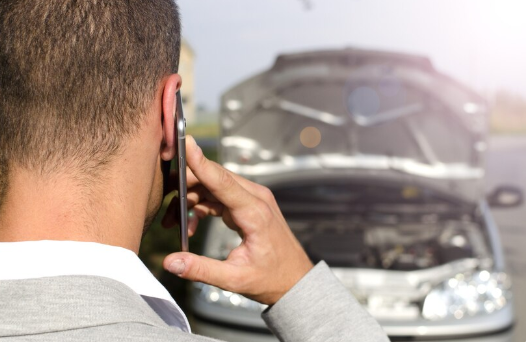A car accident can leave you shaken, disoriented, and overwhelmed. Whether it’s a minor fender-bender or a more serious collision, your actions in the moments and days afterward can significantly impact any insurance claim or legal case that may follow. Unfortunately, many people make simple but costly mistakes that can weaken their chances of getting the compensation they deserve.
Here are some of the most common mistakes to avoid after a car accident:
1. Not Calling the Police
Even if the accident seems minor, it’s important to call the police and file an official report. A police report creates a neutral, third-party account of what happened, which can be invaluable later if there’s a dispute about fault or damages. Without it, your case could become a “he said, she said” situation.
2. Admitting Fault at the Scene
It’s natural to want to apologize after an accident, especially if someone is injured or upset. But saying “I’m sorry” can be interpreted as an admission of guilt, even if you weren’t actually at fault. Stick to the facts when speaking with the other driver, the police, or witnesses. Let the investigation determine fault.
3. Failing to Document the Scene
If you’re physically able, take pictures and videos at the scene. Capture the damage to all vehicles involved, the surrounding area, traffic signals, road conditions, license plates, and any visible injuries. This evidence can be crucial in supporting your version of events later.
4. Skipping Medical Attention
Even if you feel fine right after the crash, it’s still wise to get checked out by a medical professional. Some injuries—like whiplash, internal bleeding, or concussions—might not show symptoms immediately. Delaying medical care can not only harm your health but also give insurance companies a reason to argue that your injuries weren’t caused by the accident.
5. Not Following Doctor’s Orders
Once you begin treatment, it’s critical to follow your doctor’s instructions. Skipping appointments, stopping treatment early, or ignoring medical advice can raise red flags in a legal case. Insurance adjusters or opposing attorneys may argue that you weren’t seriously hurt or that you made your condition worse by not taking care of yourself.
6. Giving a Recorded Statement Too Soon
Insurance companies may ask for a recorded statement shortly after the accident. You are not legally required to give one right away, and doing so without understanding your rights can be risky. You might accidentally say something that can be twisted or used against you later. It’s best to review your options and be fully prepared before making any official statement.
7. Posting About the Accident on Social Media
It might feel natural to share your experience on Facebook, Instagram, or Twitter—but it’s a bad idea. Insurance companies and opposing attorneys often scour social media accounts for anything they can use to undermine your claim. Even a seemingly innocent photo or comment could be taken out of context and used to question your credibility or the seriousness of your injuries.
8. Accepting a Quick Settlement
Insurance companies may offer a quick settlement to close the case fast—sometimes before you even know the full extent of your injuries or vehicle damage. Accepting too soon can leave you with unpaid bills or ongoing health problems that aren’t covered. Be cautious and make sure you understand the long-term impact before agreeing to any offer.
9. Not Gathering Witness Information
If there are bystanders or others who witnessed the crash, try to get their names and contact information. Witnesses can provide unbiased accounts that support your version of events, which can be a major asset in any legal proceedings or insurance negotiations.
10. Waiting Too Long to Act
Every state has a statute of limitations for filing a car accident claim. If you wait too long to take action, you could lose your chance to seek compensation entirely. Additionally, evidence can disappear, memories fade, and your case becomes harder to prove with time.
Final Thoughts
What you do after a car accident matters. Taking the right steps—and avoiding the wrong ones—can make all the difference in protecting your health, finances, and legal rights. Stay calm, be smart, and don’t rush. The decisions you make in the aftermath could affect you for months or even years to come.
This post was written by a professional at Jeanette Secor, PA Attorney At Law.
For over 20 years, the law office of Jeanette Secor, PA in St. Petersburg, FL, has been the go-to choice for those seeking justice after an personal injury lawyer st. petersburg fl. Renowned as the best attorney for slip and falls, Jeanette Secor has a proven track record of successfully representing clients in car accidents, motorcycle accidents, and slip-and-fall incidents.


